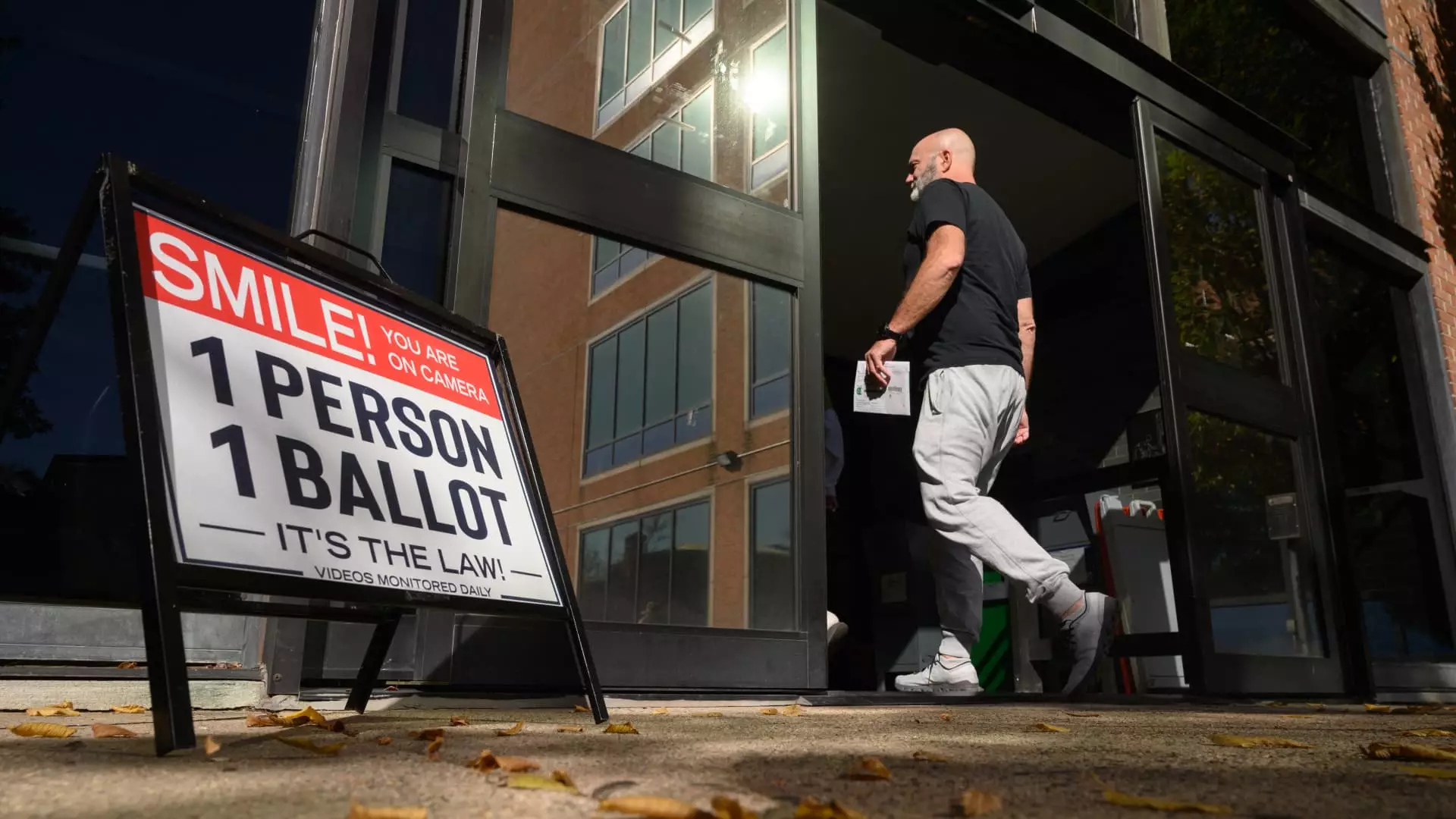The recent Supreme Court decision to allow Pennsylvania voters to use provisional ballots if their mail-in ballots are flagged for defects signals significant legal and electoral ramifications. This ruling, which marks a notable setback for Republican efforts to challenge mail-in voting practices, underscores the complexities surrounding election laws in a crucial swing state. As the nation prepares for the upcoming 2024 elections, this case serves as a focal point for broader discussions regarding voting rights, election integrity, and legislative authority.
The legal dispute originated from the Democratic primary held earlier in Pennsylvania, specifically involving two voters from Butler County: Faith Genser and Frank Matis. After submitting mail-in ballots that were deemed defective, both voters were informed their votes would not be counted. In response, they cast provisional ballots in person, subsequently filing a lawsuit when informed that even these votes might not be included. The Republican National Committee (RNC) intervened, asserting that existing state law mandates the rejection of any ballot that fails to meet strict criteria, including the absence of requisite secrecy envelopes.
As the case progressed through appeal stages, the Pennsylvania Supreme Court ultimately sided with the voters, citing that the law allows for provisional ballots when issues arise with mail-in ballots. This decision prompted the Republicans to seek intervention from the U.S. Supreme Court, which was denied, indicating a split in the broader battle over how election laws should be interpreted and implemented.
The Supreme Court’s refusal to stay the Pennsylvania ruling, articulated by Justice Samuel Alito along with Justices Clarence Thomas and Neil Gorsuch, revealed the complexities surrounding the legal framework governing elections. Justice Alito acknowledged the “considerable importance” of the issue, yet underscored the court’s reluctance to intervene at this juncture. Their decision does not conclusively resolve the matter, leaving room for potential future litigation and further disputes over election procedures.
The ruling’s implications are particularly relevant as the general election approaches. If the same logic applies in future contests, it could affect thousands of ballots, especially in a battleground state like Pennsylvania where margins can be razor-thin. Observers suggest that a small number of invalidated ballots could have substantial ramifications, possibly altering the trajectory of statewide races.
Legal and Political Context
The legal reasoning at play connects to an ongoing debate among conservatives regarding the extent of legislative authority over elections. The U.S. Constitution delegates the power to set election standards to state legislatures; however, the Pennsylvania Supreme Court’s decision has been interpreted by some Republicans as an unlawful encroachment on this authority. This aspect of the case ties back to a broader legal context, stemming from previous Supreme Court rulings that have navigated the balance between state control and judicial oversight in electoral processes.
Many Republican officials have raised concerns about mail-in voting, especially following the 2020 presidential election, citing fears of widespread election fraud. These claims, often unsubstantiated, serve as a pretext for further legal challenges to voting practices. Looking ahead to 2024, the RNC has already signaled intentions to push more lawsuits in key states to challenge potential voting irregularities, echoing strategies employed during the last election cycle.
Looking Forward: Voter Impact and Legislative Response
As the legal landscape continues to evolve, it remains paramount to consider the impact on voters. The current ruling allows for a remedial approach, enabling individuals whose ballots may have been mistakenly voided to still participate in the electoral process. This is especially crucial in states where voter turnout plays a pivotal role in competitive races. However, disparate practices across counties could result in confusion, detracting from a seamless voting experience.
The potential for further litigation can foster uncertainty regarding the rules governing elections, which in turn may discourage participation among eligible voters. With this dynamic at play, state lawmakers might feel pressured to clarify and standardize voting procedures to mitigate legal disputes and increase voter confidence heading into the general election.
Moreover, the case underscores the importance of understanding local election laws and advocating for fair and accessible voting practices. As the 2024 election nears, both sides of the political spectrum must grapple with the implications of this ruling and its potential to reshape the electoral landscape in Pennsylvania and beyond.
The Supreme Court’s recent decision in Pennsylvania opens up a significant dialogue about voting rights, the efficacy of mail-in ballots, and the ongoing wrestling match between state legislatures and court interpretations of election law. As these issues unfold, they will undoubtedly play a critical role in shaping the political landscape leading into the next presidential election.


Leave a Reply